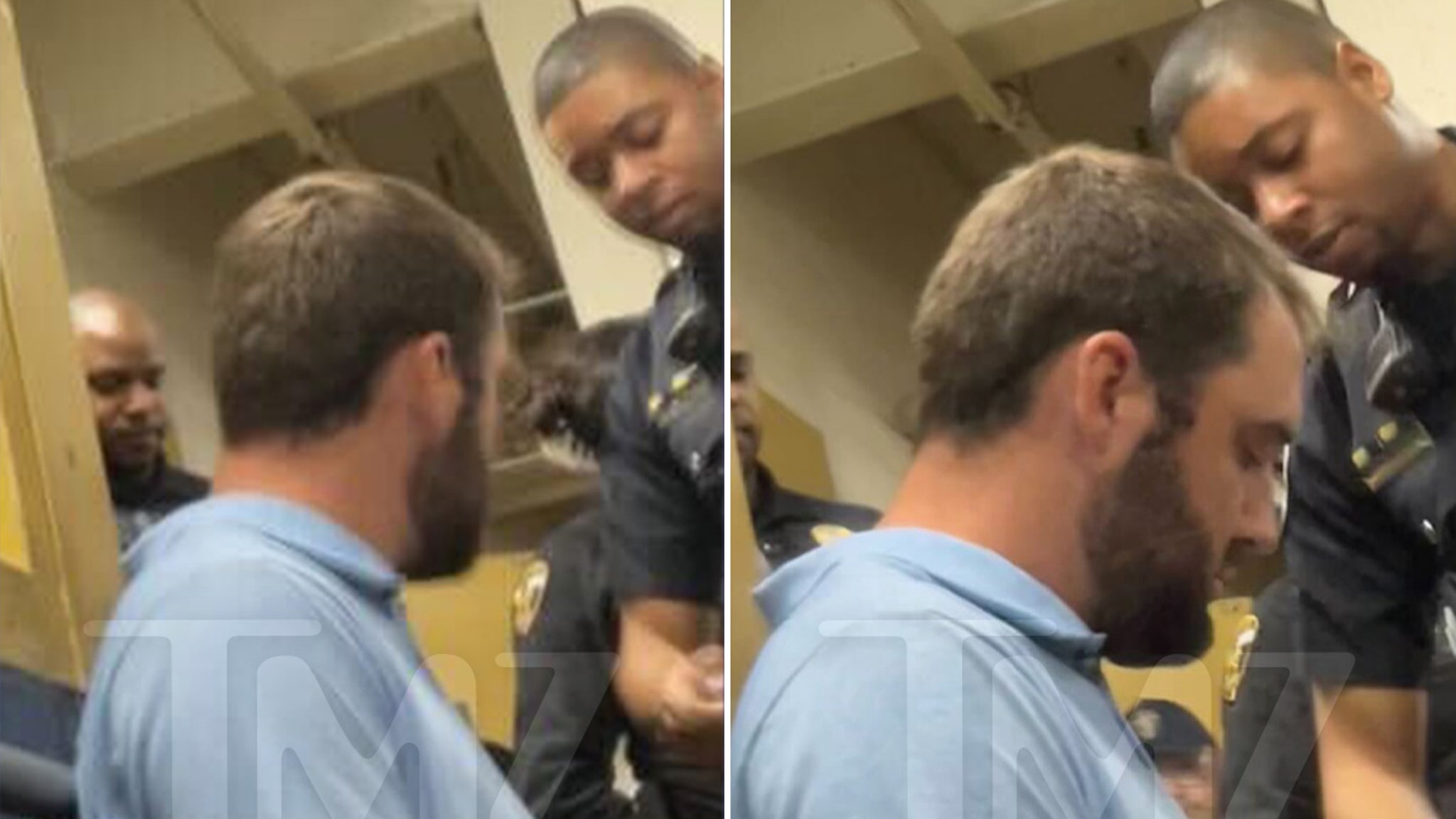Culture
Robert Beerbohm, Pioneering Comic Book Retailer and Historian, Dies at 71

Robert Beerbohm, who in the 1970s helped to start the first comic book chain stores and then, after a flood wiped out inventory in his warehouse, became a professed archaeologist of comics history, died on March 27 at his home in Fremont, Neb. He was 71.
His daughter, Katy Beerbohm-Young, said the cause was colorectal cancer.
A pugnacious character on the comic book scene for nearly 30 years, Mr. Beerbohm once summed up his career as “a hobby that got way out of hand.”
It started in his early teens when he boarded a Greyhound bus in Nebraska for a 28-hour trip to sell comics at a convention in Houston. It ended as he was trying to finish writing “Comic Book Wars,” his eagerly awaited magnum opus about the industry.
In between, Mr. Beerbohm waited on Jerry Garcia, Robin Williams and Bruce Lee at his stores in California; discovered what was believed to be the first comic book printed in the United States; and discussed comic book history with the gentleness of a heavyweight boxer.
(On Facebook, one of his last posts lamented “bold faced liars” at comic book rating agencies who would “make stuff up out of thin air” and prey on buyers as if they were “rubes unsuspectingly entering a carnival.”)
“I liked the presence he had in comic book land as one of those feverishly enthusiastic fans and scholars and networkers,” the Pulitzer Prize-winning cartoonist Art Spiegelman, a friend, said in an interview. “He was kind of manic. He came with a lot of enthusiasm, but that was one of his most endearing qualities.”
As a teenager, Mr. Beerbohm traversed the country on weekends and breaks from school in his Rambler Classic, selling comics at conventions. In 1972, he dropped out of college and moved to San Francisco, where he hooked up with the comic book dealers John Barrett and Bud Plant.
These were the early days of comic fandom, when the industry shifted from newsstand and supermarket sales to direct retail. As comic book stores began opening around the country, Mr. Beerbohm and his partners opened Comics and Comix on Telegraph Avenue in Berkeley, near the University of California.
Students left with their purchases wrapped in brown paper bags. “When we first opened up, the Berkeley police were convinced we were a major drug smuggler,” Mr. Beerbohm said in a podcast interview with Comic Book Historians, an online fanzine.
The next year they opened a second store, in San Francisco, followed by outlets in San Jose and Sacramento, and Comics and Comix thus became what is widely considered to be the first comic book retail chain. The company eventually operated seven locations in California.
Mr. Beerbohm left the business in 1975 after a falling-out with his partners. In 1976, he opened his own store, Best of Two Worlds, on Haight Street in San Francisco. Two others stores followed, including one a block away from his old partners in Berkeley.
He was an evangelist for his hobby.
“At the time, comics were still kind of viewed as the bastard stepchild of any other medium that you could think of,” said the artist and cartoonist Bill Sienkiewicz, who shopped at Mr. Beerbohm’s stores. “He really sort of foretold the acceptance, and really pushed for the level of acceptance, that comics currently have.”
Conversations with Mr. Beerbohm could stretch on for hours.
“He was like a total nerd in terms of the history of this stuff,” Mr. Sienkiewicz said. “He was kind of like a historian who happened to run a shop.”
In 1986, a flood at Mr. Beerbohm’s warehouse forced him to close two of his three stores. He opened another, but without a large stock, his business never fully recovered.
As time went on, Mr. Beerbohm became more and more consumed by comics history. He hosted an internet chat group and contributed articles to trade publications, including The Overstreet Comic Book Price Guide, an industry authority that publishes treatises on comics history.
One of his specialties was the so-called platinum age, a period beginning in 1897 when comic strips began appearing in newspapers. For decades, historians believed that the first coming book was the collection “Yellow Kid in McFadden’s Flats,” which contained reprints of the comic strip “The Yellow Kid” that originally appeared in The New York World.
But in 1998, a woman in Oakland called Mr. Beerbohm. She had a comic called “The Adventures of Obadiah Oldbuck,” by Rodolphe Töpffer, which had been published as a supplement in Brother Jonathan, a weekly newspaper in New York. It had been in her family for generations. She also had a letter from her grandfather that said, “Don’t sell this — it’s the first comic book.”
She wanted to sell it.
At that point, the industry dogma was that the “Yellow Kid” collection was the first American comic book. Mr. Beerbohm told her he’d double any offer she got. After another dealer offered her $100, so he bought it for $200. The publication date: Sept. 14, 1842.
“He really expanded everyone’s knowledge going back a lot farther than anyone would have really thought,” said Alex Grand, the creator of Comic Book Historians.
Robert Lee Beerbohm was born on June 17, 1952, in Long Beach, Calif. His father, Verriel Beerbohm, worked primarily in the shipping industry. His mother, Jean (Bailey) Beerbohm, managed the home.
When he was 6, the family moved to Saudi Arabia, where his father worked for Aramco, the state-owned oil and natural gas company.
“That’s where he started reading comics — not just American comics, but comics from literally all over the world,” his daughter said.
Six years later, the family moved to Freemont, Neb., where his father bought a local Pepsi distributor. Robert used the refunded deposits from recycled bottles to buy comic books.
Robert was accepted in the pre-med program at the University of Nebraska, but he dropped out after a year to enter the nascent comics business in California.
His track record was not unblemished: Over the years, he was accused by his business partners and customers of shady dealings — all of which he denied.
In 2014, he was charged in Nebraska with theft by deception after agreeing to sell items for a customer on consignment. Ms. Beerbohm-Young, Mr. Beerbohm’s daughter, said the seller had been trying to communicate with him while he was away at a convention and contacted the police after he didn’t respond. According to court documents, the case was dismissed.
“It’s true that my dad could be a handful,” she said. “He was kind of a cranky guy. But he was also very, very generous, and he loved comic books and everything about them.”
Mr. Beerbohm married Susan Ward Young in 1973. They separated in 1981 and were estranged when he died. In addition to her and his daughter, he is survived by two stepsons, Stephen and Robert Jones.
Mr. Beerbohm didn’t finish “Comic Book Wars,” but he left behind copious notes. His daughter said she hoped to find a writer to complete the book.
He deplored the current state of collecting, with buyers treating their purchases as investments and sealing them in hard plastic cases so the pages don’t crease.
“I mean, that’s like boring to me,” he told Comic Book Historians.
He wanted comics buyers to keep turning the pages.
Kirsten Noyes contributed research.





















